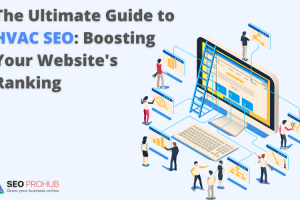Beware! Keyword Cannibalization Might Eat Up Your SEO Efforts
The internet continues to impact our lives in ways unimaginable. Gone are the days when people used to look up paper-printed catalogs of their favorite products or turn to Yellow Pages to find services or businesses they were interested in. In fact, today, 7 out of 10 Americans don’t even check their newly received phone books.
However, with the luxury of the internet and the fun and ease of putting stuff online comes a new hazard: your valued content getting lost in the deep oceans of information.
Search engines work like a flash for users who know exactly what they’re searching for, but when it comes to a common search, narrowing down audiences to a smaller, more-manageable pool gets more complicated and troublesome.
As a local business owner, you likely offer your products or services to your local people, but you could potentially grow wider to serve the entire world by setting your foot in a global market. In that case, you are competing with the whole world. So, it’s vital to get the services of a good SEO company and, more importantly, of the one who understands the proper use of keywords.
Feeling like you are drifting away from the actual topic (i.e., keyword cannibalization,) patience is the true virtue, friend. And details matter!
Table of Contents
Keyword and Keyword Cannibalism
The keyword, as we all are aware, is the foremost element of an online search. When people turn to a search engine to look up a product or service, the first thing they do is enter a series of relevant words or ask a question in case of a voice search. The search engine utilizes this tiny string of words to scan the entire internet. It then presents the results and ranks them following different criteria, like purposefulness and popularity, and basically the presence of proper keywords.
But it all starts with mere keywords. For example, if you sell gardening tools and products, you should be using keywords like landscaping tools, plants, plant care, or plant insecticides on your website. If your website doesn’t mention gardening or plants, search engines won’t recognize your website as being about plants or gardening products. Obviously, you wouldn’t reach a broader, relevant target market.
However, if you end up overdoing it, you fell prey to keyword cannibalism and does not do any good for your SEO.
Too Many Keywords, Too Bad for Business
Keyword stuffing can easily become an SEO nightmare as it will destroy your search rankings. Modern algorithms have rigorous protocols and react harshly to keyword stuffing. And therefore, keyword cannibalization is the ultimate side-effect of punishing keyword stuffing with much lower search rankings.
Keyword cannibalism, in easy words, can be defined as the presence of too many identical keywords stuffed in the content across many pages of your website. As a result, search engines can’t recognize which content to rank higher. This means that sometimes you will end up with a higher ranking on the page you didn’t mean to prioritize in the first place. It may also decrease the ranking of other pages that feature these similar keywords. Hence, a waste of your SEO services and efforts.
Steering Clear of Keyword Cannibalism
It’s very easy to identify possible keyword cannibalization issues on your website. You have to conduct like this: “Domain + keywords.” This will provide you with the exact information you’re looking for.
So what can you do to avoid keyword cannibalism? Let’s dive into some tips now, shall we?
Merge Content
Suppose you have two web pages stating similar types of content, such as a web page recommending best plant insecticides and a page that lists bad plant insecticide. In that case, you may want to take all this information, combine, and put it on a single webpage.
This exact solution won’t necessarily fit every situation, but, quite often, merging your content will both simplify and multiply your website’s search engine optimization practices.
Remove Keywords
If you want to maintain a certain type of content for other reasons and the presence of one or more keywords isn’t critical, then deleting it from your content is always an option. This may be a tiring or slower way of doing things, but it has the virtue of being an easy and straightforward solution.
Delete Content
It’s indeed extreme, but nothing close to impossibly dramatic. You may want to consider completely deleting the problematic web content–especially if it’s no longer serving the purpose of relevancy to your website. If your business has expanded, and somehow that rusty, not-so-properly-researched blog post with certain keywords is still ranking above your desired website content, then delete it. It’s one way of entirely getting rid of the problem!
Alter Your Internal Linking
If you have website content that links to other web pages, then the links may also have some room for improvement. For search engines like Google, links indicate importance, so if you interlink other pieces of content or web pages together, your search engine may rank the mighty linked content higher.
Try adding or tweaking the internal linking of your website so that less valuable content links to the content you want to rank higher. By doing this, you send a signal to the SERPs that the linked content is more important. Rightfully completing all your SEO steps is still very important.
Protect Your Growing Website Today
If your website is growing bigger, you will likely face keyword cannibalism on your very own website. Today, search algorithms are far more sharp and sophisticated than you and discern when it comes to awarding search ranks. While we all know content is the king, good content with no traces of keyword cannibalization will help you score better rankings and highlight content that is of utmost importance and relevance.
Learn how to use keywords correctly up to their full potential with a professional SEO services provider agency that houses the best SEO experts. This will not only help your business grow but grow better!
















No comments